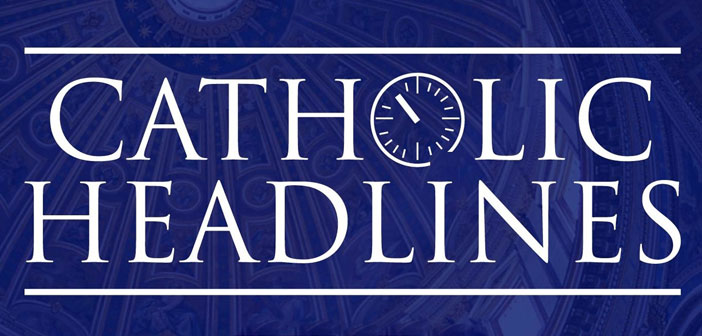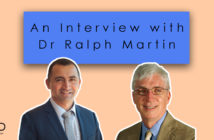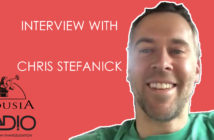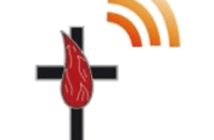 News from around the Catholic world for the week ending 31 October.
News from around the Catholic world for the week ending 31 October.
DOWNLOAD (Right click to save) (7:30 mins)
• Pope Francis speaks of his admiration of Pope Emeritus Benedict
• Disabled 12 year old killed by starvation following court ruling in UK
• Cuba to build its first church in 55 years
• Fee increases in Catholic schools to address disadvange in rural areas
• Social justice to give Sydney youth an opportunity to put faith in action.
TRANSCRIPT
BOBBIE: Pope Francis has spoken of his admiration for Pope Emeritus Benedict XVI in an address to the Pontifical Academy of Sciences.
The Holy Father spoke of his predecessor at the unveiling of a bust of Benedict XVI at the Pontifical Academy on Tuesday, local time.
Pope Francis during his address said that Benedict XVI was, [quote]“a great Pope: great for the power and penetration of his intellect, great for his significant contribution to theology, great for his love for the Church and of human beings, great for his virtue and piety.”
The unveiling was part of a plenary meeting between members of the Pontifical Academy of Sciences, which focused on the topic of evolving concepts of nature. Pope Francis discussed this topic during his address.
VATICAN RADIO: Pope Francis spoke to the theme of their gathering, noting that the Catholic intellectual tradition has always affirmed the fundamental compatibility of a natural order that unfolds and develops, with the idea that the universe has been made, and does not merely happen.
“Evolution in nature is not inconsistent with the notion of creation,” he said.
“The scientist,” he continued, “must [nevertheless]be moved by a trust in the idea that nature hides, within her evolutionary mechanisms, potentialities that it is the task of intellect and freedom to discover and actuate, in order to achieve the [kind of]development that is in the design of the Creator.”
SARAH: The plenary meeting concluded on Tuesday.
—
A 12-year-old has died of starvation after a UK court accepted her mother’s application to kill her.
In an unprecedented case, Justice Eleanor King determined that Charlotte Fitzmaurice Wise should be entitled to kill her daughter Nancy, who suffered from hydrocephalus, meningitis and septicaemia. None of the illnesses were terminal, but left Nancy unable to walk, talk, eat or drink.
Ms Wise said she believed 12-year-old Nancy was in too much pain to live, and that she should no longer be kept alive.
“She wasn’t my angelic child any more, she was a shell,” said Ms Wise.
“I wanted beautiful memories of Nancy, not soul-crushing ones,” she said.
Nancy took 14 days to die of starvation after the decision. This is the first time that a child breathing on her own, not on life support, not suffering a terminal illness, has been allowed to die in the United Kingdom.
The decision comes after a cancer patient in the United States gained worldwide coverage over her decision to be euthanised.
Tiffany Maynard was diagnosed with a brain tumour in January this year. She was told she had six months to live, and decided to end her own life and spend her final days campaigning for euthanasia.
Ms Maynard had originally set 1 November as her final day, but has this week announced that she will delay her decision as she is still feeling well enough.
Ms Maynard moved to Oregon with her family in order to be prescribed lethal medication, as euthanasia is not legal in her home State.
More on that story at news.com.au.
—
Over in Cuba, there have been positive signs of progress with the communist government sanctioning the construction of a Catholic church for the first time in 55 years.
The church is to be funded by an exiled community in Florida and will be built in Sandino, a town on Cuba’s western coast.
Christianity, though once strong in Cuba, was suppressed following the 1959 revolution. However, the Cuban Government’s decision to allow the building of the new church is apparently part of a gradual softening of its stance against religion.
Cuba has received two Popes since the revolution, the first being St John Paul in 1998. Fidel Castro marked the visit by declaring Christmas a national holiday.
Emeritus Pope Benedict XVI expressed his optimism about the future of the Church in Cuba following his tour of the island in 2012.
—
Back at home, Catholic schools will next year introduce differential fees to address disadvantages to students in rural and remote areas.
In a letter sent to parents last week, Sydney Catholic Schools Executive Director Dr Dan White said that due to policy changes by the Catholic Education Commission NSW and the Federal Government, schools across Australia would need to direct additional funding to areas with the greatest need.
In effect, parents in Sydney could expect to see fees rise by 4-9%, with an average increase of 5-7%, depending on the SES ranking of the area.
“The changes are based on [Sydney Archdiocesan Catholic Schools’] position that no Catholic Child should be denied a Catholic education due to genuine inability to pay fees,” Dr White said.
He also acknowledged the families that would be negatively impacted by the changes. Parents particularly affected by changes in fees for 2015 were encouraged to approach their respective principals for a confidential discussion on the matter.
Sibling discount policies on tuition fees are also being amended, with school fee relief being directed to families where there is a greater financial need.
Catholic education in Sydney is still significantly more affordable than in neighbouring Catholic dioceses and comparable non-government schools.
—
Sydney’s Justice of Peace Office will hold their second annual social justice expo Faith in Action next week at the University of Notre Dame.
The event will run from November 3rd to 5th, featuring three keynote presentations. It will conclude with the main social justice expo on Wednesday and an address by Sydney’s Apostolic Administrator Bishop Peter Comensoli.
Contemporary justice and peace issues will be addressed, with the first two talks covering environmentalism and youth homelessness. Cradio spoke to Event Coordinator Qwayne Guevara to find out more.
QWAYNE: It really came about through our work with schools and parishes, that there was a gap between youth and opportunities to be involved. The Faith in Action Expo really is an opportunity to encourage and empower young people to live out their faith in this world through action. There will be about 20 organisations there all representing the various arms and works of the Church, and we’re expecting young people to really connect and discover new ways that they can express their faith and be a witness to the world.
SARAH: Monday and Tuesday’s talks will commence at 1.30pm, with an opportunity for Mass afterward. The final day’s workshop will commence at 4pm, followed by Mass at 8.15pm.
Register for free for one, two or three days of participation at faithinactionsydney.eventbrite.com.au or for more information go to faithinactionsydney.com.
—
Music Credit: Waking Up by Dexter Britain.





